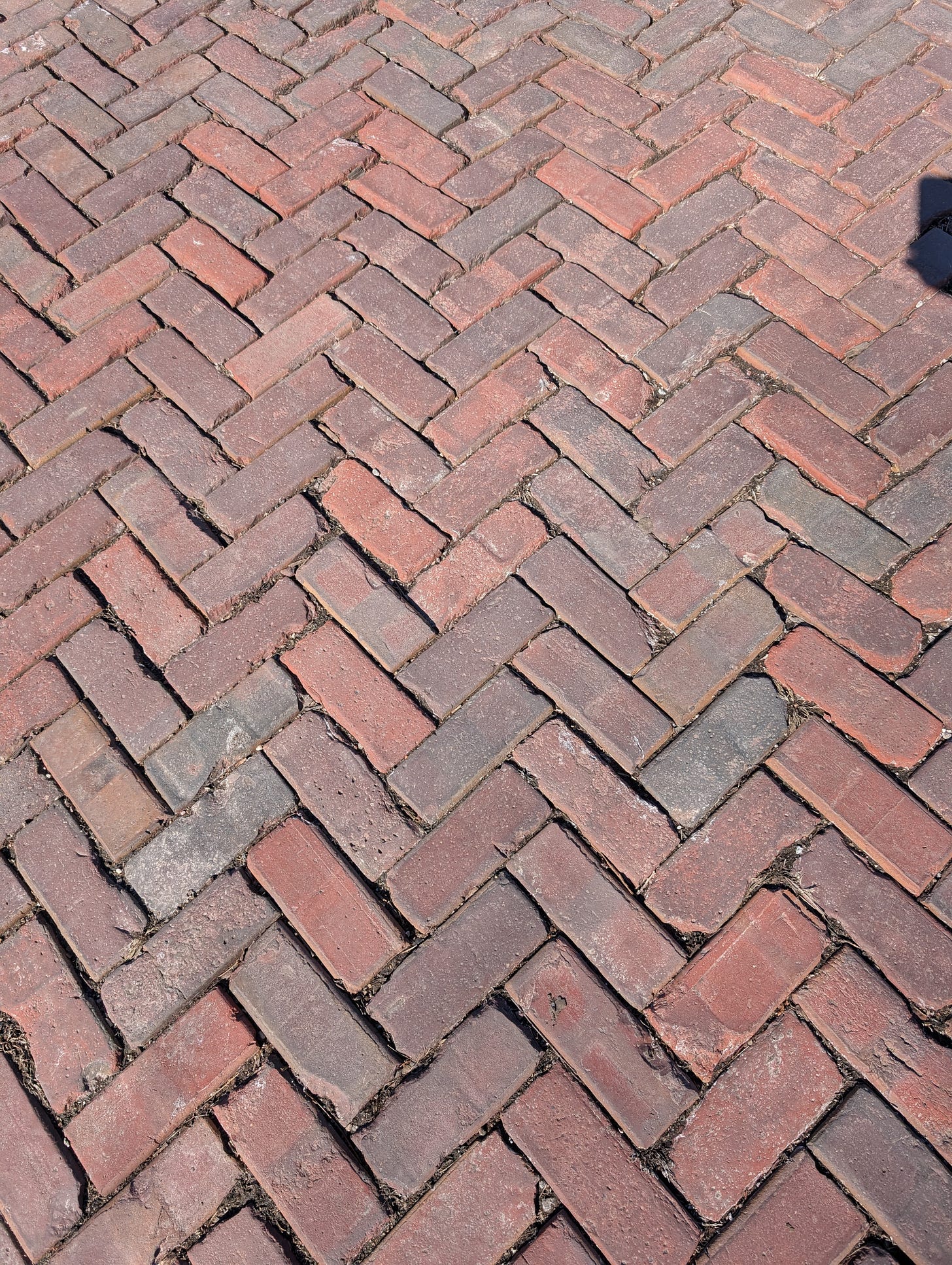Tell me if you’ve experienced something like this before.
You’ve got an idea. A grand idea. An idea that’s going to take a lot of damn effort and work, and you’re unsure whether it’s a dream that will turn into a nightmare, an unreachable ideal of a dream you’ll never attain, or an actual opportunity for a “dream-come-true” adventure in life.
What do you do?
If you’re at all like me, you may have handled it in the following ways.
Journaling. You sit with some coffee or beverage of your choice and scribble out a bunch of thoughts about this idea. Some of you may draw pictures. Some may doodle. Some may origami. But the point is that you find yourself with paper and pen just in case the idea suddenly jumps out of your mind with a manual and directions and your inspiration needs jotting down on paper.
Walking. You grab a coat in winter or a hat in summer and decide to walk about your neighborhood. You know that walking produces thinking, so you choose a well-known route that doesn’t require any navigation. Or maybe you simply make your turns and straight-aheads as you walk, but it’s all within a well-known area that feels safe for you to let your thoughts cry, hiss, laugh, and high-five themselves as they wish.
Talking to a friend. Perhaps a little more on the vulnerable side. You decide to share your idea, get some feedback. “Do you think this is something that could work or is last night’s pizza simply back to haunt me?”
Doing absolutely nothing. You’re tired of things not working out, so you say something that amounts to “Fooey! I’m done watching my ‘grand ideas’ crash and burn,” and may even practice saying it like Walter Matthau from Grumpy Old Men.
I’m guilty of all, and I’m sure there are many other options for dealing with grandiose thoughts. But because I have a newsie on tramping about towns I’m gonna make the case for wandering, which I’ll define for today as “walking in less familiar spaces without an agenda.” Go where you want when you want at the pace you want sippin’ on what you want. This option is not difficult, and it can produce the full range of feelings that leave you hopping mad at one point and teary at your unfettered courage and immeasurable resilience at another.
Here’s the skinny on how wandering happens.
Choose a starting point. You don’t actually have to set out from home. Drive, uber, or teleport. It doesn’t matter. Decide on a starting point and get there one way or the other. This past week, I started at a bookstore after sneaking my lunch next to their cafe and taking a nap in the sun shining through a bay window on the second floor above Dubuque Street. I didn’t know I needed a nap when I settled into the leather chair next to a stack of books, but I soon discovered that nothing seemed more pleasurable than settling down two inches further so that my head could rest on the high back of the chair and I wasn’t going to slip ‘n’ slide right off and onto the floor. I woke from my 20 min power nap ready to ramble.
Let your idea land. Here’s the fun part. While you’re strolling, imagine your idea already exists. Take pictures of where the idea may take place, of colors it may include, or of sleek automobiles it’s gonna get for you when you make your millions (if, of course, this is a business idea). Wandering is about seeing your dream in the flesh, capturing it like a runaway household pet before it makes its way to the next neighborhood and you have to pay animal control when they bring it back to you.
Notice what stands out. Part of plodding about unfamiliar spaces is about mindfulness. Being in familiar spaces allows you to skip over the mundane, to not be where your feet are. Rae tells me this is technically called dissociation. Unfamiliar spaces, however, force you to live on the surface of your experience, to let go of the problems that are not present to the physical space you are in, to leave the deeper realms of abstraction and be present to the ongoing sensory experiences of the body. Unfamiliar spaces invite you to give your cognitive conundrums over to the subconscious, which cognitive scientists tell us continues working on solving problems even when we’re not thinking about the problems directly. There’s research to support this, but I’ll provide a personal anecdote. I was doing an experiment on memory because I was about to meet with one of the leading learning experts in the country from Washington University in St. Louis and had just read his book called Make It Stick. This was when I was working at the College of Charleston. I couldn’t remember the name of the lead actor from Shawshank Redemption even though it’s one of my favorite movies of all times. Instead of googling the cast list, I decided to do my best to remember and then let it go, which the book argues is a way of relearning and more important than the initial learning phase. I tried and tried to remember his name but came up with nothing. Zilch. Nada. Then, I walked away from it. The next morning—less than 24 hours later—I’m sitting in traffic on Highway 52 on the hour drive into the city when “Tim Robbins” emerged from the exhaust fumes while sitting at a traffic light, and I haven’t forgotten about it since. My point? Let what grabs your attention grab your attention. Your mind will continue working on problems subconsciously. Your task is to get into your body, be present where your feet are, and take pictures of stray cats.

Okay, strangest thing I’ve seen in a while, but they’re in Gaslight Village, so there’s that. Four gravestones that are part of a house’s brick facade, all in German Interrupt the familiar. Perhaps this step needs to go before the previous step. Not sure. Gallivanting is an effort to get out of your head and into your body, which is done best when you’re not trudging through spaces you know really well. And you don’t have to go to the next county to interrupt the familiar. We’re creatures of habit. Wanderlust thrives on the less-traveled-out-of-the-way block one or two streets away from your usual route. Going to a familiar destination in an unfamiliar way can feel like you’re in a different world. I think it was Thoreau who said something like “It only takes a [person] turning around with his eyes closed in the woods to feel [they’re] in a different country.” It’s not an exact quote, and I probably need to remove the quotation marks, but it’s not from me.
Capture the encounter. Intersperse your ambling with time for reflection, and the medium doesn’t matter so long as it suits you. One of the things I did this past weekend is use an app I discovered on my phone to record myself talking while loping about. The beauty of this app is that it also created a transcript so that I could share it with myself and store the ideas I generated on a Google doc. Who knew?!

There you go. Keep choosing desire over fear.
Michael
PS - All photos captured on my Saturday saunterin’.







I wrote 1 hour too soon. Iowa City is now under a blizzard alert. It's not bitterly cold, but windy. =)